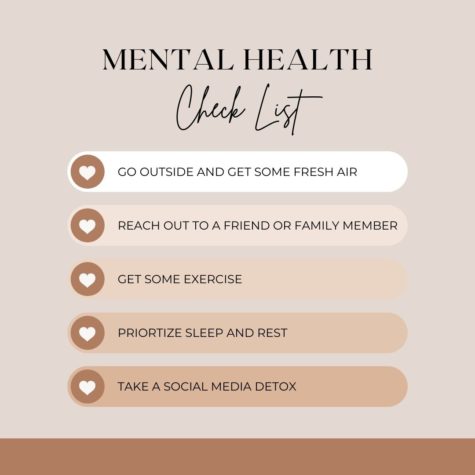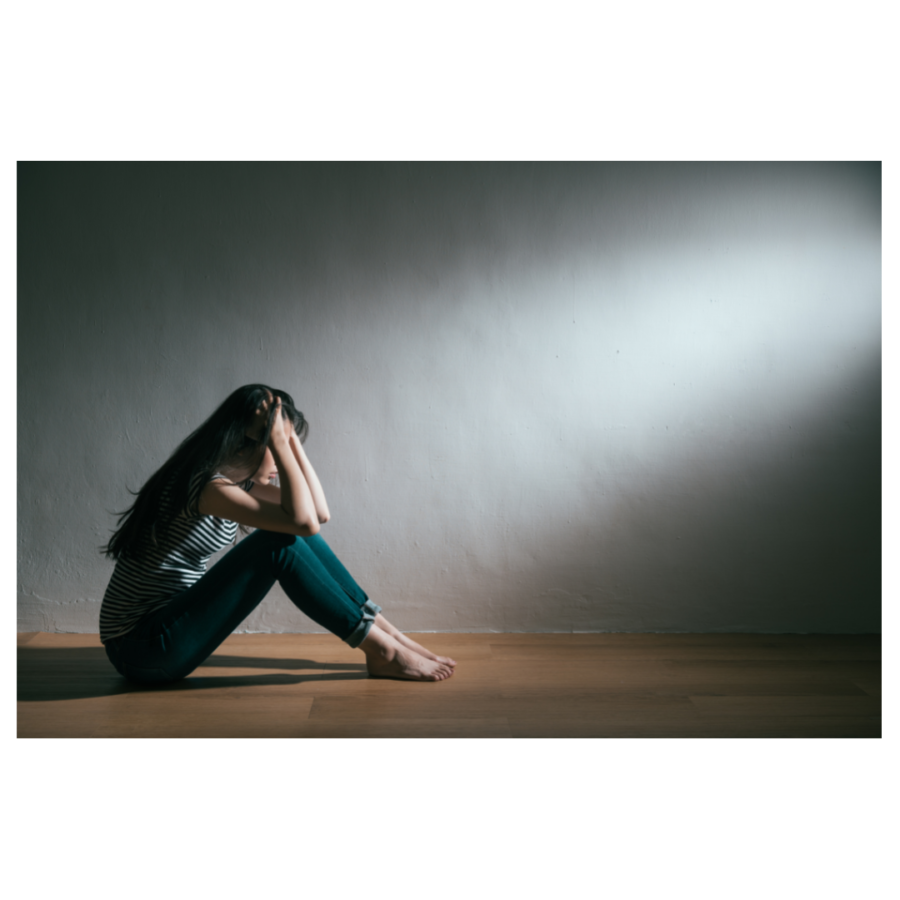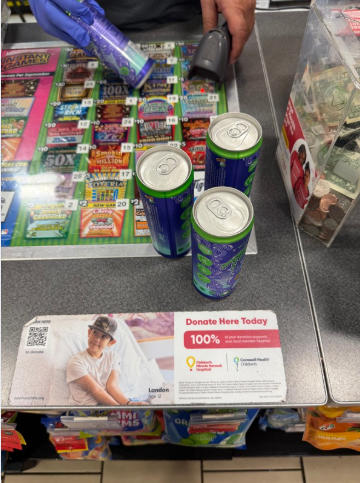Seasonal depression looms as winter approaches
RHS students and staff share their tips on how to combat the winter blues
December 19, 2021
As winter comes upon us, there are many mixed emotions about the cold weather. Some wait all year for the snow, while others repulse at the sight of it. The holidays bring much happiness and joy in the winter, but we can’t dismiss the reality of seasonal depression.
Many people, including students, suffer from seasonal depression, also known as Seasonal Affective Disorder (SAD). This mood disorder is categorized as a form of depression during certain times of the year, many experiencing it in the winter months. Symptoms include sadness, anxiety, weight gain, extreme fatigue, sleeping more, lack of energy, loss of interest in activities and more.
Although the holidays are often noted as “the most wonderful time of the year”, some feel that the days are long, dark, and slow.
Junior Sara Baylon, is diagnosed with depression and has opened up about her experiences about navigating through a mental illness.
“Usually what made me feel really down was the change in routine,” Baylon said. “I became easily obsessed with having a routine where everything was at the same time every day and every day was the same. that’s what would help me feel sane. but with a change of weather and daylight, some events and tasks had to be moved around. and that made me really anxious.”
Depression and Seasonal Affective Disorder obviously have many differences, but their symptoms can often resemble each other. Sometimes the winter months bring people down, based on the lack of sunlight or ability to spend time in nature due to the weather.
“The best thing to do to keep myself out of a depressive episode is to not let the change in weather stop me from doing what I like to do,” Baylon said. “I thrive in a routine. Before I used to say that it was too cold to go out or to socialize or move my body, and after falling into that mindset my mental health seriously plummeted. Now I force myself to put on a jacket and gloves and just go out to the gym or to the store. Having a change in environment can really liven up my mood.”
As a mother, psychology teacher Mrs. Caylan Healy understands it is how hard it can be for kids not to have the ability to run outside without having to bundle up and prepare for the cold.
“I hate being cold and trapped in my house,” Mrs. Healy said. “My kids and I love to be outside so that is the biggest bummer for me during the winter months.”
No matter how much change comes with the weather and the lack of motivation, it’s important to maintain a daily routine. For some who struggle to build a routine, it’s important to reach out.
“[It helps when people] check up on me and try to make plans because I most likely will not reach out,” senior Shelby Gibson said.
Baylon has noted how much staying in a routine has helped her through her worst moments of depression.
“For me, the best thing to do to keep myself out of a depressive episode is to not let the change in weather stop me from doing what I like to do,” Baylon said. “I thrive in a routine. I like going to the gym and going on walks I also enjoy hanging out with my friends. Before I used to say that it was too cold to go out or to socialize or move my body, and after falling in that mindset my mental health seriously plummeted, so now I force myself to put on a jacket and gloves and just go out to the gym or to the store and having a change in environment can really liven up my mood.”
COVID has made it extremely difficult to connect with others in a meaningful way. As pandemic restrictions continue to lessen, and we have the ability to see others in person, spending meaningful time with those suffering from a mental illness can be very impactful.
“I think remembering to take time connecting with others is helpful,” Mrs. Healy said. “Don’t shut yourself in all winter, try to find ways to have fun with friends and family.”
For some, physical activity and sports can be very therapeutic. The team environment and community may improve mental health.
“I am a firm believer in the mental, physical, emotional and social benefits of being active, so this remains a top priority for me,” health teacher Mrs. Amy Oppat said. “Even on days when I recognize my motivation is lacking, I still find a way to exercise regularly and I always feel better when I do.”
With that said, any athlete must know how hard to push themselves and know when the environment becomes unhealthy.
“Sports do affect my mental health and I do believe there is a link between sports and seasonal depression,” Gibson said. “In the winter months it feels better to be able to be home with no stress; sports add stress. Personally I am less motivated in the winter, and having a sport to do everyday can be difficult.”
Having a mental health diagnosis is not a choice. No matter what kind of sickness a person has, whether it be a physical illness or a mental illness that someone can’t see, everyone deserves kindness.
“Just as we do not choose to be sick with cancer or diabetes, a person does not choose to have a mental health challenge,” Mrs. Oppat said. “It is imperative that we embrace the needs of each type of challenge and remind ourselves that we are still full of value.”
There are many approaches to treating a mental illness. There is no cure, and everyone requires a different plan to navigate through the symptoms.
“We should treat mental illness the same way we treat physical illness, with kindness, compassion and empathy for the person who is suffering. Do not assume someone is sad for attention or that it is not as bad as they say it is. Avoid trying to “fix” the mental illness. If someone told you the broke their arm you wouldn’t say well stop thinking about the pain or just use your arm and you’ll feel better. We should be treating depression the same way
Depression is complex. It is so important to make yourself available to anyone with a mental illness and provide as much love and support as possible.
“The reason why depression can be so devastating is because we have to fight our own
brains to get out of it,” Baylon said. “[It helps to] talk about it with my mom. I would tell her how I felt and she would just sit there and listen and give me hugs. Just because someone can’t cure you in an instant does not mean they can’t make the journey less lonely. The second thing was advocating for myself and getting a therapist. Having a counselor is like talking to your best friend about your issues but they actually know how your brain and emotions work and can give you working solutions.”








